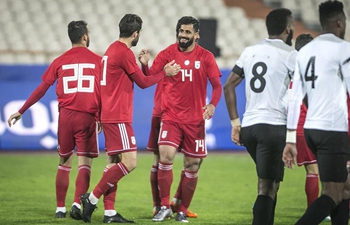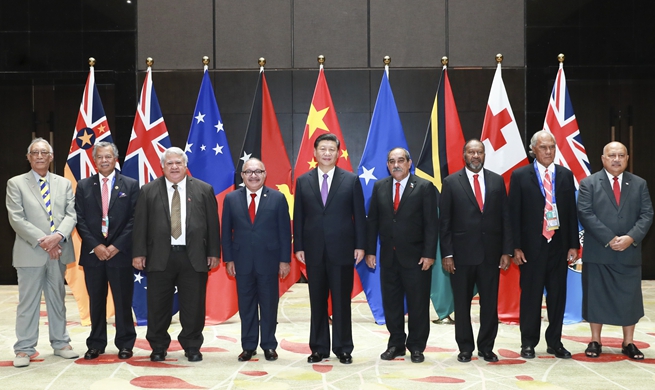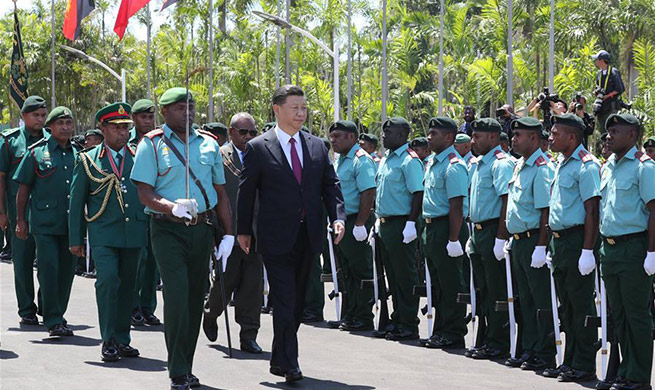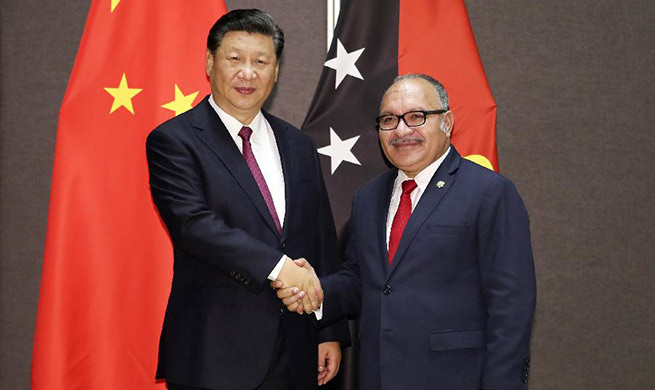CHICAGO, Nov. 16 (Xinhua) -- Parents who talk to their children about nonviolent ways of resolving conflict may reduce children's likelihood of physically or psychologically abusing their dating partners later, showed a U.S. study released on Friday.
The findings "show the value of parents advocating nonviolent responses to conflict," said University of Illinois social work professor Rachel Garthe, who led the study.
"Youths may be getting a mixture of both violent and nonviolent solutions from their parents, but in our study it was those nonviolent messages that really protected kids from perpetrating violence in their romantic relationships," said Garthe.
Researchers surveyed a random sample of more than 1,000 sixth-, seventh- and eighth-grade students about their parents' views on handling conflict.
The assessment included questions such as whether the child's parents condoned fighting as long as another person started it, or if their parents urged them to stay calm or walk away if another person said something disrespectful to them.
The majority of the students, ranging from 82-88 percent across all the waves of data collection, reported receiving a mixture of parental messages that endorsed peaceful as well as aggressive means of handling disputes.
Students also were surveyed about their perpetration of dating violence during each three-month period prior to their completing a survey.
The students were asked if they had engaged in six forms of physical violence, such as shoving their romantic partner, and four types of psychological aggression, such as intentionally provoking jealousy in their boyfriend or girlfriend.
Students rated each act of dating violence on a 0-3 scale, with a "0" meaning they had never engaged in that behavior and a "3" meaning they had done it 10 times or more.
The study found that the prevalence of dating violence among the students surveyed was high across all years of the study, which spanned 2010-2017. As many as 35-45 percent of the students indicated that they'd committed at least one act of physical or psychological aggression against a boyfriend or girlfriend.
Although adolescents perceived that they'd gotten a mixture of parental messages about violent and nonviolent ways of addressing conflict, the researchers found that perceptions of parental support for fighting did not predict changes in youths' dating-violence perpetration over time.
These associations between parental messages and youths' likelihood of perpetrating dating violence were consistent for males and females, said Garthe.
The youths in the study all were students at three public middle schools in urban areas in the southeastern United States. Most of these students - 91 percent - racially identified as African-American, and the majority of their families were living at or below the poverty level.
Prior research with economically disadvantaged communities has shown both a greater prevalence of dating violence and parental support for aggressive means of handling conflict.
The study this time adds evidence to a growing body of research that suggests parents in these neighborhoods can mitigate dating violence in their children by communicating nonviolent methods of dealing with challenging situations, Garthe said.

















